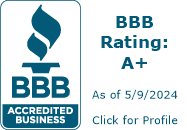6 Steps to Create an Effective Property Management Plan

Managing a property successfully involves a lot of responsibilities. Therefore, a well-thought-out property management plan is essential to ensure the long-term health of your rental property. It helps you streamline operations, optimize resources, and maximize the value of your investment.
In this post, we'll walk you through the process of preparing a successful property management plan.
1. Conduct a Thorough Analysis of Your Property
The process of preparing a well-thought-out property management plan starts by assessing your property. This assessment will help you gain valuable insights to identify potential areas of improvement. It involves assessing the structural integrity of your property.
This assessment allows you to make informed decisions related to the management of your property. A property management company Campbell can help you with all steps of creating an effective property management plan including a thorough analysis of the property.
2. Outline a Clear Management Vision
Defining your goals is a critical part of property management. Consider your short-term and long-term goals at this stage.
These goals can be to reduce maintenance costs, improve tenant satisfaction, or increase the occupancy rate of your property. Your goals guide your actions in the property management process.
3. Create a Financial Strategy
Budgeting and financial planning is a part of property management where you allocate resources to ensure the sustainability of your investment. This includes categorizing your expenses to create a realistic financial forecast. The primary expenses include insurance, maintenance, repairs, and property management fees.
You also want to establish a projected rental income based on occupancy rates and current market prices. Creating a financial strategy contributes to the long-term success of your investment and helps you make the most of your resources.
4. Develop Your Strategies
In the next step of property management, you create an action plan to achieve your defined objective and goals. The strategy for managing your property includes addressing key aspects such as maintenance, marketing, tenant relations, etc.
This step also includes developing strategies for tenant screening, collecting deposits, enforcing lease terms, and listing or marketing your property. Be realistic and flexible with strategies to adapt to changing scenarios.
5. Implement Your Plan
The fifth step is to implement your strategies and assign your responsibilities. At this stage, you decide who will be responsible for the tasks. You can hire a professional property management company in Campbell or manage your property yourself. Whichever option you choose the manage the property, document the responsibilities in a written agreement to ensure accountability in the long run.
6. Monitor the Performance
The final step of property management is to evaluate the results and monitor your performance regularly. This helps you identify and address any issues with your plan. Regularly monitoring the performance allows you to mitigate maintenance emergencies.
You can collect and analyze the feedback from your tenants, contractors, vendors, and property managers to stay ahead of the changing circumstances and the issues that may arise.
Choose Westside Property Management Company for Effective Property Management
Need help managing your property? Westside Property Management Company has got you covered!
We are a full-service property management company in Mountain View helping new and experienced real estate investors in managing their investments effectively.
Our team of experienced professionals possess the knowledge to manage any type and size of property. We provide personalized services to assist you with all aspects of property management.
Share this post









